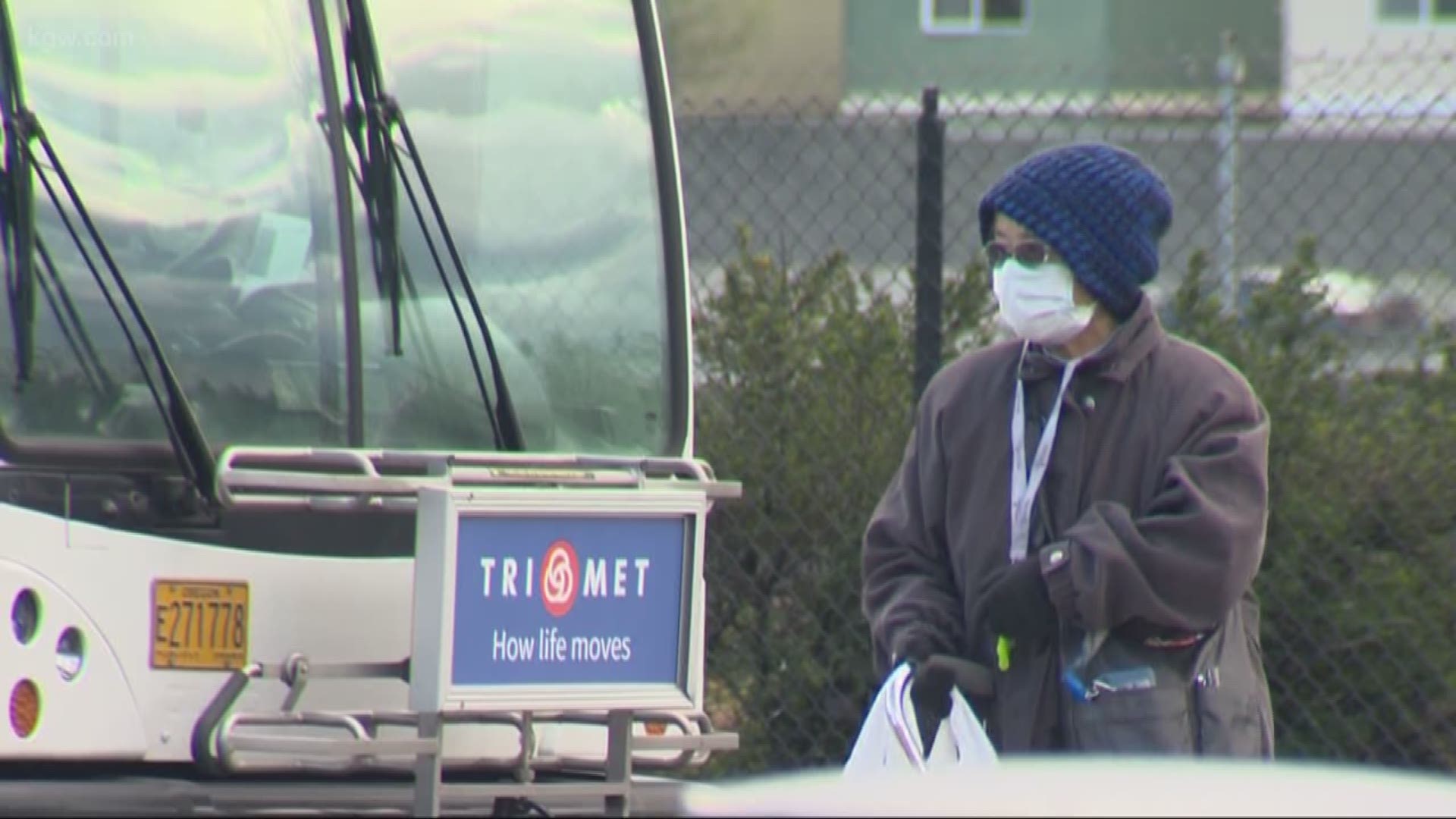PORTLAND, Ore. — President Donald Trump said in his press briefing Friday that the Centers for Disease Control and Prevention would now recommend that Americans wear cloth masks or other face coverings in public as a preventative measure to help slow the spread of the novel coronavirus. Trump called the recommendation voluntary.
The recommendation is a reversal from previous guidelines issued by the agency, which had said that healthy people did not need to wear face coverings. The agency started to rethink those guidelines as more and more evidence showed that asymptomatic people could unwittingly spread the virus.
The Centers for Disease Control and Prevention will not be recommending that people wear N95 masks or surgical face masks because those masks are in short supply and need to be left for hospital staff members and first responders. But they are encouraging people to cover their faces -- especially the nose and mouth -- with homemade and other cloth face coverings.
Here is what you need to know about wearing a mask in public:
How can wearing a mask help stop the spread of COVID-19?
The change in thinking around masks has come as research has shown that up to 25% of people suffering from COVID-19 are either asymptomatic or exhibiting only mild symptoms. These people can spread the virus without knowing that they are infected.
By wearing a homemade mask, you can limit your chances of unwittingly spreading the virus by ensuring that droplets that carry the virus can’t escape and potentially infect others. Homemade masks, particularly those made of thicker materials, can also offer some protection to healthy people by preventing droplets from getting into the nose and mouth and serving as a reminder to people not to touch their faces.
Chunhuei Chi, a professor in the global health program at Oregon State University, told The Oregonian/OregonLive earlier this week that anyone who visits a grocery store, uses public transportation or works or visits a public dwelling with close contact to other people should wear a mask.
Do I still have to adhere to social distancing measures if I’m wearing a mask?
Yes. Masks are not effective on their own.
Officials are still urging people to adhere to social distancing guidelines and wash their hands frequently, along with recommending the people wear masks in public.
Oregon Gov. Kate Brown issued a stay at home order on March 23 instructing people to stay home, except when traveling for essential work, buying food and similar critical supplies or returning to their own homes. That order remains in effect.
As of Friday, there were 899 reported cases of the novel coronavirus in Oregon and 22 deaths stemming from the virus. But there is also strong evidence that social distancing measures and restrictions are working to flatten the curve.
What do I need to know if I chose to wear a mask?
Anyone wearing a homemade mask in public should make sure that the mask covers both the nose and mouth and be careful when adjusting it. If your mask has straps that go over the ears, you should put it on and remove it by pulling off those straps. You should avoid touching the mask regularly or reaching under the mask. Contaminated or damaged masks are not effective.
Using fabric and sewing supplies to create your own cloth mask at home might be the best option for people that want to cover their face in public. Patterns are available online. Bandanas, scarves, or other types of cloth face masks, such as ski masks or balaclavas, could be used as face coverings as well, when creating your own mask is not an option.
If you are making a homemade mask, you should always use thicker materials, as long as you can still breathe through the mask. While a bandana may offer some protection if it is all you have, you should fold it two or three times before wrapping it around your mouth and nose to offer more protection.
What should I do if I already have a supply of N95 masks or surgical face masks in my home?
If you have a supply of N95 masks or surgical face masks sitting around, or any other type of personal protective equipment, you should consider donating them.
Oregon’s need for N95 masks, gowns, face shields and gloves has become so dire that nurses at many hospitals are saying they have less than a week left of gear to protect them from the coronavirus. The Oregonian/OregonLive has compiled a list of places where the public can go to donate protective equipment.
In Oregon and across the country, crafters are also stepping up to try to fill the gap by producing homemade masks. Thousands of Oregonians have joined the Facebook group, “Crafters Against Covid-19 *PDX*,” to try to stave off the shortage in supplies.
Where can I buy masks and face coverings?
Kohl’s, Amazon, Target and Dick’s Sporting Goods all carry items that could be used as homemade masks, including bandanas, scarves, ski masks or balaclavas. The Oregonian/OregonLive has put together a list of places to purchase face coverings.
We have also put together a video explainer on making masks at home:
This article was originally published by The Oregonian/OregonLive one of more than a dozen news organizations throughout the state sharing their coverage of the novel coronavirus outbreak to help inform Oregonians about this evolving health issue.

